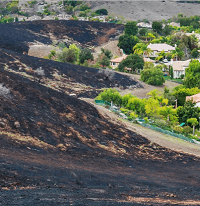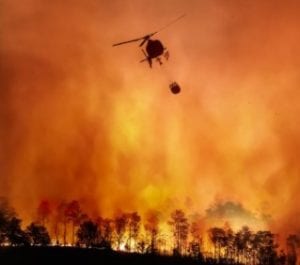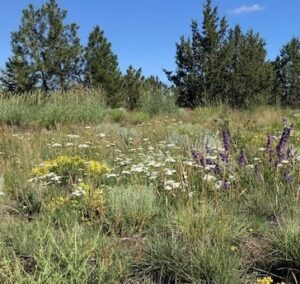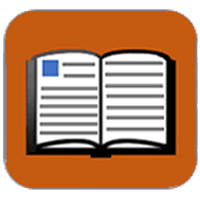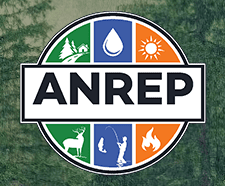Fire Communication & Education
Webinar registration.
Are you planning for smoke preparedness and mitigation in your community and looking to embed that work into your Community Wildfire Protection Plan? Join our discussion and talk with experts about tips and resources for integrating smoke considerations into your CWPPs.
Webinar registration.
Are you thinking about integrating your Community Wildfire Protection Plan update with an All-Hazards Mitigation plan or other local plans? Join our discussion and talk with experts about tips and resources for how to crosswalk these plans effectively. This is the first of a three-part series that will provide a deep dive into developing the next generation of CWPPs.
More information and registration.
Explore the Role of Ranchers in Fire Ecology and Land Management
While most wildfire research in the western U.S. focuses on public lands (e.g., Forest Service, BLM, Park Service), private ranches—especially across the Southern Rockies—play a crucial role in managing biodiversity, supporting rural livelihoods, and mitigating wildfire risk. Ranchers are increasingly engaging in land stewardship and collaborative research to build resilience against extreme wildfires.
About the Western Ranch Management and Ecosystem Stewardship Program (WRMES)
WRMES promotes sustainable ranching practices that support forests, rangelands, wildlife, water resources, and
rural communities in the Intermountain West by providing classes, research, outreach, and a masters degree.
Highlights (4 Weeks):
• Visit 8–10 working ranches representing diverse ecosystems and management approaches.
• Learn strategies directly from ranchers creating both ecological and economic sustainability
Training details and registration.
In this streamlined class, you’ll learn how to guide a focused and actionable Community Wildfire Protection Plan process that delivers results. You’ll learn to:
- Map out each stage of CWPP development
- Assess local wildfire risks using trusted tools
- Engage your community and prioritize treatments
- Build and implement a results-driven action plan
Training will be JUNE 9 – 10
8 A.M. – 5 P.M. Redmond Fire and Rescue
341 NW Dogwood Ave. Redmond, Oregon
Webinar registration.
Learn about new geospatial data products to support wildfire planning and response including national fuel treatments, fire response districts and communities mapping.
Webinar registration.
Informative webinar on fire-resistant plants and commonly found species in New Mexico. Also, learn more about effective landscaping techniques to help reduce wildfire risk and protect your property.
View article.
Our study aimed to document the expansion of PBAs and provide insight into their structure, function, and impacts. Leaders from 135 known PBAs across the United States were invited to participate in an online survey. Survey results demonstrate a widespread emergence of PBAs in the United States, successfully mobilizing thousands of volunteers to collectively burn more than 34,000 ha annually. PBAs demonstrated that they are reducing myriad barriers to prescribed burning while meeting their goals to broaden access to the use of fire using a neighbors-helping-neighbors model to provide training, pool resources, and reduce the costs of prescribed burning. By including volunteers with diverse levels of experience and backgrounds, PBAs are changing the narrative of who has access to the use of fire.
Webinar recording.
Fire suppression is the primary management response to wildfires in many areas globally. By removing less-extreme wildfires, this approach ensures that remaining wildfires burn under more extreme conditions. This is termed the “suppression bias”, and it fundamentally impacts wildfire activity, independent of fuel accumulation and climate change. Attempting to suppress all wildfires necessarily means that fires will burn with more severe and less diverse ecological impacts, with burned area increasing at faster rates than expected from fuel accumulation or climate change. Over a human lifespan, the modeled impacts of the suppression bias exceed those from fuel accumulation or climate change alone, suggesting that suppression may exert a significant and underappreciated influence on patterns of fire globally. Managing wildfires to safely burn under low and moderate conditions is thus a critical tool to address the growing wildfire crisis. Presented by Mark Kreider, TNC
Event webpage.
The ANREP National Extension Wildland Fire Initiative or “NEWFI” is pleased to announce that NEWFI and its partners will be hosting a peer-learning exchange on wildland fire this spring 2025 in Wawona, CA, Yosemite’s Historic Town.
This peer-learning exchange was initially piloted in 2023 through NEWFI’s collaboration with NC State Extension Forestry, alongside other partners. It featured a multi-day, hands-on workshop that showcased effective strategies and activities for education and engagement in prescribed fire and fire science.
Back by popular demand, NEWFI along with the University of California’s Agriculture and Natural Resources Fire Network and the California Fire Science Consortium will host another peer-learning workshop on prescribed fire, cultural burning, home hardening, defensible space, and post-fire topics.
View article.
Strategic development and implementation of burn boss training may increase the likelihood that burn bosses can safely and effectively implement prescribed burns. This article presents a case study for applying key adult learning methods to improve training effectiveness that can be applied to other training topics in and outside wildland fire management.


